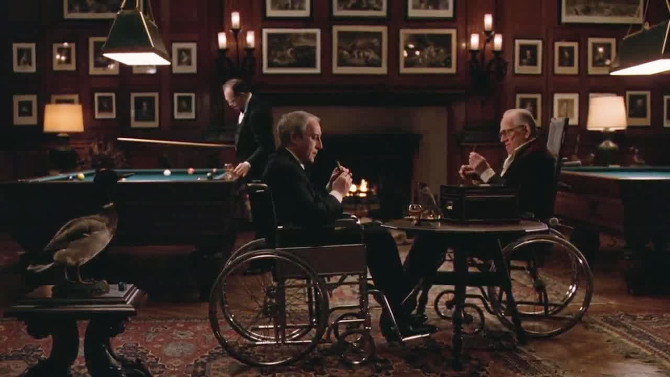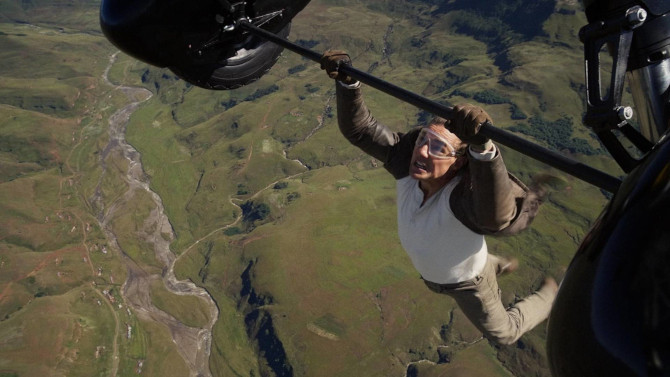
An Impossible Mission
How do you wrap up a franchise like Mission: Impossible? That is, if this even is the final installment... as they’ve made it sound (while at the same time, stars not named ‘Tom Cruise’ pipe up and suggest that might not be so). It has been twenty-nine years, with different writers and visionary directors – from twisty Brian De Palma and the action hair stylings of John Woo, to the lens flares of J.J. Abrams and animation expert Brad Bird, it was only about ten years ago that the franchise decided to opt for The Usual Suspects scribe Christopher McQuarrie for the final four. To return to that opening question once more, you could end with a Sopranos’ style cliffhanger, simply make another entertaining movie like the many before – like Everybody Loves Raymond did it with its final episode, or try to tie everything up in a neat little bow by bringing everything together as the Daniel Craig era did with James Bond. Well, it is definitely more along the lines of the latter example, with some distinct differences.
-

Oscar Predictions 2017
February 25, 2017Predicted winners, who should win, and my favourites from this year's Oscars (the 89th Academy Awards). Catch up on all of the buzz before the big event.
-
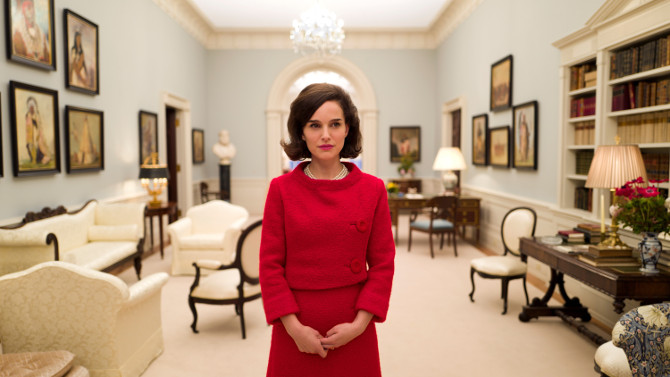
Jackie’s Legacy for John
JackieFebruary 24, 2017Unfurling the story that takes place immediately after the assassination of John F. Kennedy, 2016's Jackie is an intimate portrayal of a woman in a dreadfully surreal crisis. Delving into a horrifically memorable moment from the past that has seemingly been looked at in every which way, Jackie succeeds at developing a multilayered story that goes beyond the surface, and thought-provokingly brings up questions of fact versus fiction, history versus myth/legend, idealism versus realism, as well as finding stark stoicism in the face of unimaginable horror. And horror it is, as director Pablo Larraín weaves together multiple threads that create a somber, melancholic mood that teeters on realistic dread, dismay and terror. It is something that is hard to fathom – as it is unbelieve to imagine that any of us will ever experience such a dreadful incident that is then followed by overwhelming media attention and scrutiny. Though vulnerable, our main character is able to steady herself, finding a poised grace in order to stand strong, being a calm, enduring, mother-like figure that will help guide the nation through one of its darkest hours.
-

Something Wick This Way Comes
John Wick: Chapter 2February 21, 2017A perfect case of ‘just when I thought I was out, they pull me back in’, John Wick: Chapter 2 starts off soon after the original feature. Starting with a video of Buster Keaton projected onto a New York City wall, Wick (Keanu Reeves) is like one of those silent film stars of the 1920s – though much more violent. A man of few words, he bumps, crashes and bangs his way through foes, a wandering ‘tramp’ with no true home, albeit, wealthier, better dressed and much more connected. Keaton, nicknamed "The Great Stone Face" has the same stoic demeanor as our protagonist – who, for the most part, plays things close to the vest.
-

Arrival Comes Full Circle
ArrivalFebruary 19, 2017We like to think of things in our lives as fitting into a nice square box. Everything has an order, with the structured days of the week to our routines fitting into this comforting perspective. We do not want to think of life as being random, chaotic and lacking a straightforward linear form – as it reminds us that things are not truly in our control. It is this linear way of thinking that is questioned in the 2016 cerebral science fiction film Arrival. Eric Heisserer adapts the text "The Story of Your Life" (written by Ted Chiang), placing it in the hands of talented French Canadian director Denis Villeneuve. Having a twofold narrative, the main portion follows the landing of twelve spacecrafts in random places around the world. With people beginning to panic and riot (as no indication has been made, either peaceful or otherwise), the government attempts to make some sense out of the unorthodox and exceptional arrival. Colonel Weber (Forest Whitaker) reaches out to linguist Dr. Louise Banks (Amy Adams), a woman with immense knowledge of numerous dialects and written languages (and military clearance to boot). She leads a team along with physicist Ian Donnelly (Jeremy Renner), the Colonel, and several other military men who will record the data after they enter the hull of the dark, kidney-shaped foreign craft located in Montana.
-
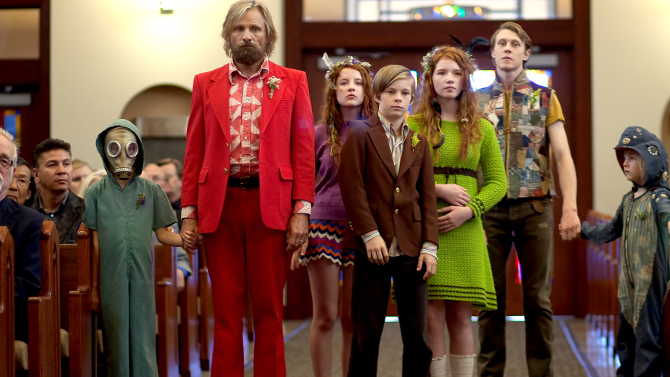
O Captain! My Captain!
Captain FantasticFebruary 17, 2017I have always been a big proponent of the education system teaching philosophy. When translated from its original Greek root words, we learn that it is best described as the love (philo) of wisdom (sophia), which is very much at the heart of the 2016 film Captain Fantastic – written and directed by Matt Ross. Towards the end of the motion picture, our main character, a multi-faceted father named Ben (Viggo Mortensen), is read a letter from his now deceased wife (her mother thinks he needs to hear it). At one point, she references the term ‘philosopher king’ – a concept adopted by Plato. For those of you who do not know of it, it was these people that he emphasized would rule his perfect utopia. Dedicated to the pursuit of knowledge and living a simple life, their ways were not that of bells and whistles (like most rulers, who live in extravagance and are catered to), but rather, to refrain from such things, educating themselves in the ways of wisdom and understanding the higher forms of knowledge.
-
Star Pick with Hayley Atwell
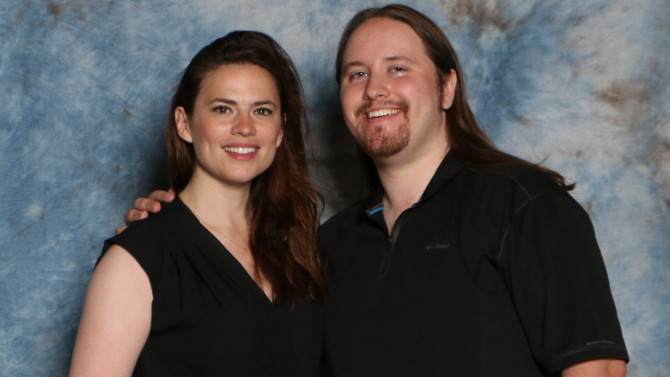 Garden State of MindBeing ThereFebruary 14, 2017
Garden State of MindBeing ThereFebruary 14, 2017Perhaps more relevant today than it was when it was released, Hal Ashby’s 1979 feature film Being There, based on Jerzy Kosinski’s 1970 novel of the same name (he also wrote the screenplay), speaks to the fickleness of fame – how, by random happenstance, one can be projected into a position of power and ‘celebrity’. Some time back, I spoke to actress Hayley Atwell. A major player in the Marvel universe, she has starred as Peggy Carter in four films, including Captain America: The First Avenger and its 2014 sequel. This spawned the critically acclaimed series Agent Carter, which sadly got cancelled after two seasons. Currently starring on the ABC show Conviction, the British star has also appeared in excellent smaller movies like 2012's The Sweeney and 2008's The Duchess, as well as the entertaining mini-series The Pillars of the Earth. When I posed my favourite question to her (i.e. her favourite film), she had two prompt responses. Speaking of her love of Bette Davis, it is fitting that one of her top films was All About Eve, mostly due to the superb performance from the iconic actress. Secondly, she spoke of the above mentioned Being There. Stating that she loved the book, she originally knew nothing about there being a movie. When she finally saw it, like the novel, it stuck with her, including Peter Sellers’ amazing portrayal as the lead character, making it one of her all-time favourites.

